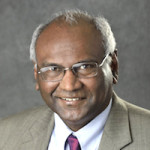No Equality Without Secularism

By S. Ratnajeevan H. Hoole –April 30, 2017
On 22 May I was privileged to chair a Jaffna Managers’ Forum meeting where Lal Wijenayake, Chairman of the Public Representations Committee on Constitutional Reforms, came to consult the public. It was an immense success. Assisted by Yuresha Fernando and Winston Pathirajah, he won applause. Charged words should be avoided he said. For example, there is plenty of support for “power sharing” but instead if federalism or unitary is used, the changes will not pass.
The only opposition was to retaining §9 of the present constitution: “The Republic of Sri Lanka shall give to Buddhism the foremost place and accordingly it shall be the duty of the State to protect and foster the Buddha Sasana, while assuring to all religions the rights granted by Articles 10 and 14(1)(e).”
Wijenayake then read §10: “Every person is entitled to freedom of thought, conscience and religion, including the freedom to have or to adopt a religion or belief of his choice;” and then §14(1) (e): “Every citizen is entitled to the freedom, either by himself or in association with others, and either in public or in private, to manifest his religion or belief in worship, observance, practice and teaching.”
His interpretation that §10 and §14(1)(e) safeguard everyone from §9 was roundly rejected since having “freedom of thought, conscience and religion” does not mean equality when the government takes funds from the common pool to foster Buddhism.
Wijenayake then tried another explanation: it is like UNESCO spending common funds to foster cultures under threat. But then, Buddhism is not a culture under threat and indeed is threatening other religions in destroying Hindu temples and churches.
He tried again: Cardinal Malcolm Ranjith had said there is no harm. But even Tamil Roman Catholics did not accept his leadership, especially after he showed himself willing to go along with the Rajapakses on their questionable projects such as the removal of the Chief Justice.
M.K. Sivajilingam had the last word saying this new constitution might be old toddy in a new pila (a serving dish made of the palmyra leaf).
President Over-stepping Boundaries
On Good Friday, a day of fasting for Christians, I received an sms from President Sirisena:
“May this Sinhala and Tamil New Year dawn upon all Sri Lankans an era of sustainability and prosperity.”
Sustain what? The corruption we voted to break free of is sustained even by the President’s and PM’s admission. We certainly do not want their sustenance of corruption to be sustained.
And “Tamil New Year”? It is a Hindu astrological event. Our religious festivals are for us to define – not for the majority to tell us. A similar imposition is claiming Thai Pongal – a Hindu Vellala Harvest Festival for the Sun God – as uniquely Tamil. I felt euphoria over the 2015 elections. However, my hopes have dimmed since the President announced that
“The government will not go ahead with any task opposed by [the] Mahasangha which provided correct guidance and advice for better governance throughout our proud history of thousands of years.” (PMD News, 21.01.2016).
We voted directly for Sirisena as President, not as the Vicar of the Mahasangha. If the Mahasangha wants to rule us then they should stand for elections. Recall that it was the Sangha that consoled Duttagemenu when he was depressed after killing many Tamils. Advised the Sangha, Tamils are “not to be more esteemed than beasts”! (Mahavamsa, Chapter. 25: 98, 103, 107-112). Was it on this ancient Sangha advice that the President promised that
“military commanders who led a successful campaign to crush separatist Tamil Tiger rebels in May 2009 should not be humiliated by bringing them to courts”? (Economy Next, 12.10.2016).
I doubt Sri Lankan Tamils and Muslims want to be ruled by the Mahasangha, considering that since Duttagemunu’s time, they have been at the forefront of communalism. The President ended a speech, wishing us the “Blessings of the Triple Gem” meaning the Buddha, the Dharma, and the Sangha. Most minorities in Sri Lanka do not take refuge in the teachings of the Sangha and would dissociate themselves from Dharma, which means caste-duty.
Equally unsettling is the President’s speech on
“the importance of making Sri Lanka a centre to spread the message of Theravada Buddhism to the world” (PMD News, 08.08.2016).

